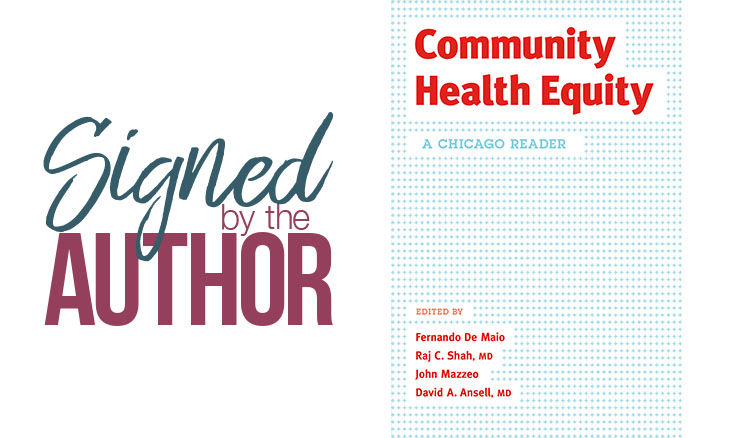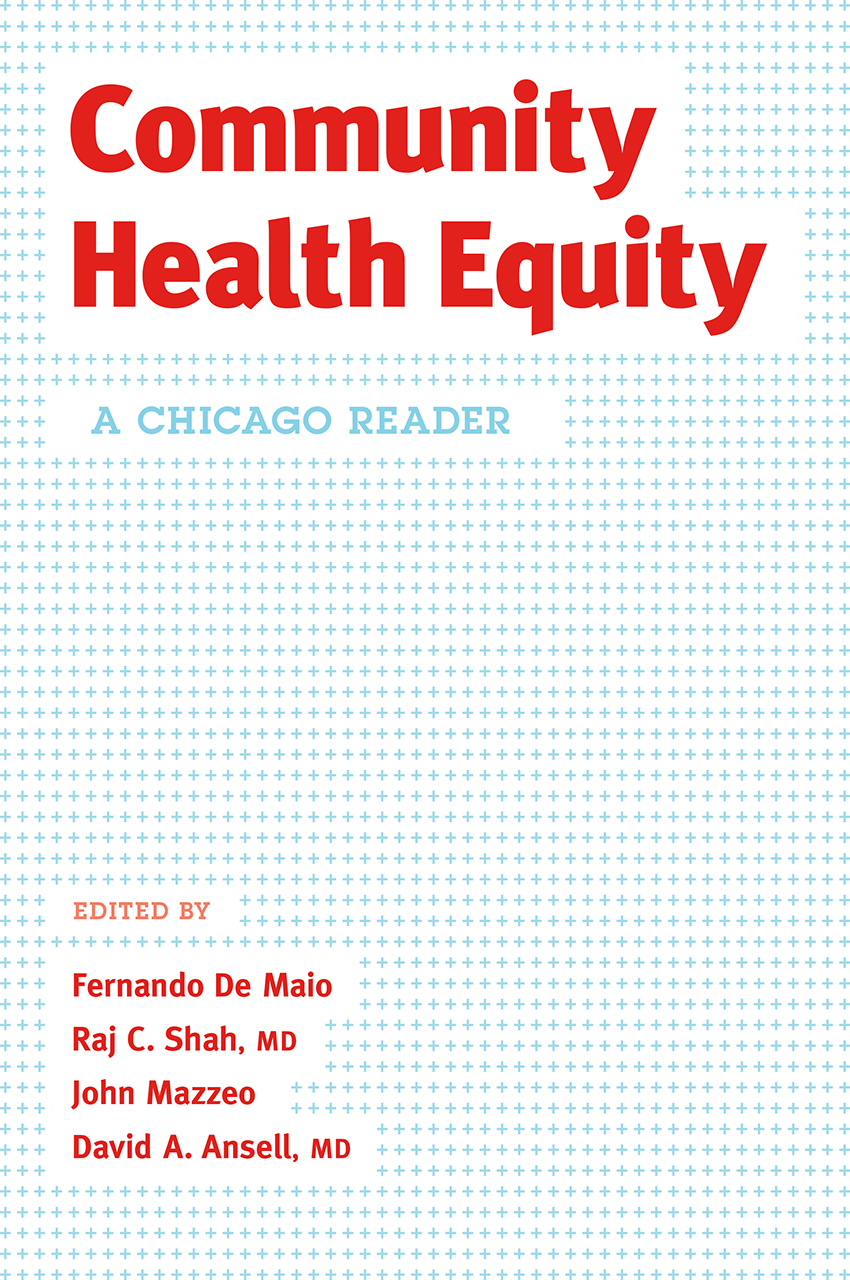 (DePaul University/Jeff Carrion)
(DePaul University/Jeff Carrion)
Edited by: Fernando De Maio, Department of Sociology; Raj C. Shah, Rush University Medical Center; John Mazzeo, Department of Anthropology; David Ansell, Rush University Medical Center
"Community Health Equity" documents more than a century of work on health equity from Chicago. It testifies to the relentless efforts of many people from many communities determined to achieve something better, more humane and just.
 (Image courtesy of University of Chicago Press)
(Image courtesy of University of Chicago Press)
To be sure, there have been significant improvements in population health over time - across the city of Chicago, people live longer lives than ever before. Yet the fundamental patterns of inequity have not changed, and structural violence - particularly racism - continues to exert a deadly toll. The lesson for all of us is that we must challenge ourselves, our respective professions, disciplines, and institutions, to act decisively to mitigate the historical injustices that lead to poor health or risk perpetuating them by our passivity.
What is the most surprising thing you learned while writing this book?
Not necessarily a surprise - but certainly an important lesson - is that so many of the ideas in this field have echoed over generations. The book is primarily a historical sketch of health inequities in Chicago. It begins with a map from 1901 detailing the concentration of excess child mortality in some neighborhoods. Over time, the particular neighborhoods in question have changed - but the underlying problem of inequity has stayed substantially the same. We’ve seen overall improvements in population health, but arguably, not much progress on the reduction of inequities. We found fascinating work from the 1920s and 1930s that have deep resonance with Chicago’s current patterns of population health. Some of the material from the 1950s and 1960s directly called out racial discrimination in the health care system, informing contemporary critiques of structural racism as a determinant of health.
Persuade someone to read your book in less than 50 words:
This book offers lessons for addressing health inequities - a glaring reflection of social injustice in this city. This book shows that we cannot assume things will get better over time, on their own.
About the author:
Born in Buenos Aires, Argentina, Fernando De Maio is an associate professor in the Department of Sociology at DePaul. He also serves as a co-director of the Center for Community Health Equity. His research and teaching interest lie primarily within medical sociology - with an interest in how macro-level social factors influence patterns of health. In other words, how ill health, one of the most personal of all personal troubles, is influenced by larger public issues.
Publisher, publication date, length:
University of Chicago Press, March 2019, 400 pages
Signed by the Author allows DePaul faculty and staff to introduce their recently published or upcoming book or chapter to the university community. To submit your book or chapter for consideration, contact Newsline.